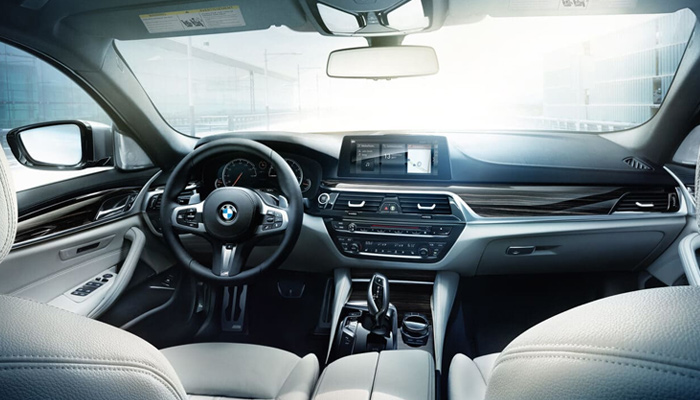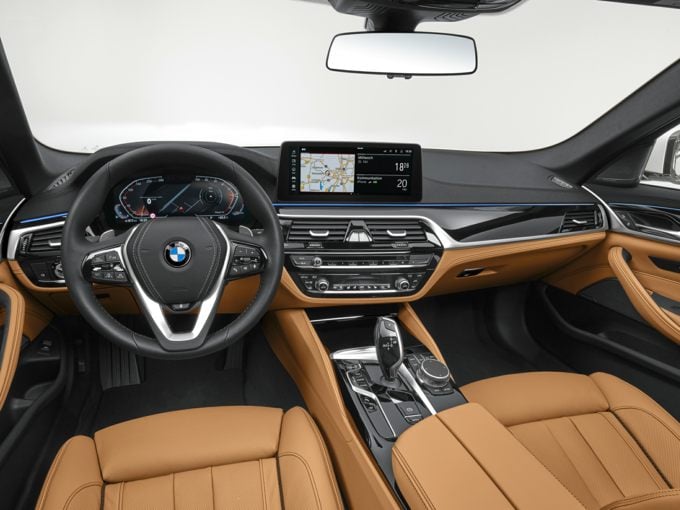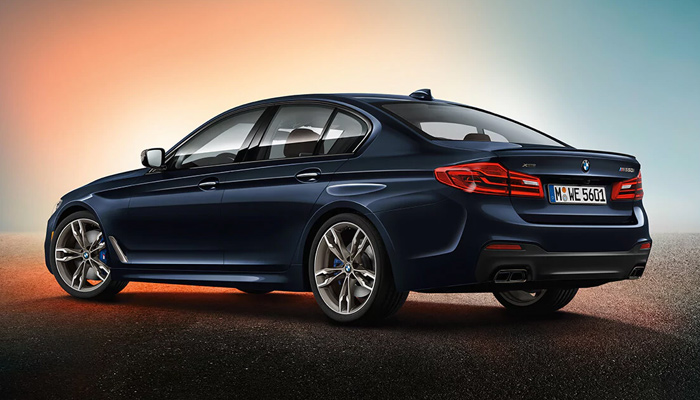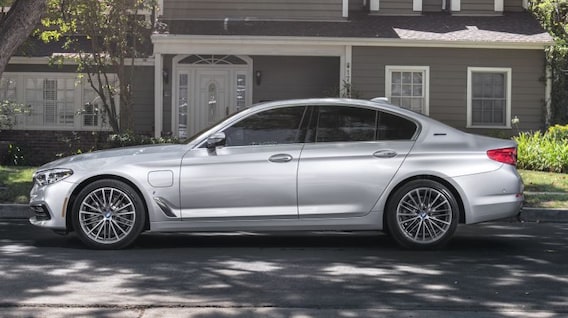According to IHS Automotive, a quarter of all new car buyers lease their vehicles, and the number goes up for luxury shoppers. For example, more than half of all retail buyers chasing a new BMW, Mercedes-Benz, or Lexus drive off in a leased vehicle. And while financing is a relatively straightforward process, leasing is not. Here’s why.
Advertising Versus Actual Inventory
Manufacturers advertise national lease specials all the time. A $399-per-month rate (the average of all car leases) draws 3-series buyers in like the tide. What about that Civic for only $99 per month and $2999 down? It’s all possible, at least in theory. That magic number in the TV ads is derived from an exact car that the nearest dealers may not stock. Even dealers—who you’d think would advertise only their own inventory—don’t always guarantee the lease prices they promote. If you go looking for the deal in the ad, you’ll have to confirm that such a car exists. Likely, you’ll be directed to a similarly priced model on the lot with another option or three, which will inflate the monthly payment.
Willing to wait for a car at the advertised price? Good luck convincing a dealer to special order a leased car. Many lease specials require taking delivery from dealer stock, and if they don’t, by the time your special order arrives, the deal may have expired. Some manufacturer deals also require an unpublished “dealer contribution”—a discount that lowers the MSRP—that not all dealers have to honor. Surprise! Out comes a higher lease payment.
Selling Price and Residual Value
Besides the selling price, the residual value is the other element that sets the total amount leased. All manufacturers set fixed residual values for every model trim level they lease—it’s the percentage of MSRP they estimate a car will be worth, at the agreed mileage and condition, when the lease expires. As you’d expect, a higher residual value lowers the monthly cost. But there’s a lesser-known variable that’s nearly as important.
Beware and Understand the Money Factor
Despite what it looks like, leasing a car does not work like renting an apartment. You’re not just paying for a car’s depreciation over two or three years, you’re also paying the manufacturer’s bank for the privilege of driving a bank-owned car. Baked deep into every car lease is an interest rate called the money factor, but unlike the annual percentage rate laid out in a finance contract, dealers write out the money factor in five decimals. Don’t brush it off: This tiny number has a high potential to screw you over.
Cheap LeasesBest Lease Deals of the MonthConsider this theoretical scenario of leasing a new Jaguar F-type. You price out a base V-6 coupe listed at $73,600, with a 66-percent residual. You put down $5000 and receive $2000 worth of incentives, which takes $7000 off the top (together known as the capitalized cost reduction). The dealer comes back and says it’ll cost $612 per month before taxes. For fun, you look at an $86,300 F-type S that comes with a 61-percent residual and another $2000 worth of incentives. The total is $647 per month. It makes sense that the more expensive car carries a higher monthly payment. But given all these differences, why isn’t the base car even cheaper? What gives?
The answer is the money factor. The base Jag had a .00238 money factor, while the S was at .00113. Convert these numbers to equivalent APRs (multiply by 2400) and it all makes sense. One lease wanted to charge you 5.7 percent, while the other was charging only 2.7 percent. Automakers clearing inventories on certain models can set money factors this way to sweeten lease offers, and while the differences aren’t always this drastic, identifying what these numbers represent in real cash lets you smell a truly good deal from a mediocre one.
Dealers Can Pocket the Difference
Here’s how you calculate the money factor’s cost: Add the residual value (your set purchase price at lease-end) and the net capitalized cost (the net price of the car after incentives and any down payment) and multiply that sum by the money factor. For the above example, the S ($140 per month in interest) carries a significantly lower interest cost than the base car ($261).
Of course, as with any interest rate, only customers with the best credit scores qualify for the lowest money factors, except there’s another catch. Just as they can with financing, a dealer can legally write you a higher money factor and refuse to disclose the exact rate calculated by the automaker’s bank. On manufacturer lease specials, dealers typically aren’t allowed to do this, but in most cases, dealers can mark up the money factor and pocket this extra cash without your explicit knowledge. That’s why if you finance, you should always get a loan quote from an outside bank, at least so the dealer can try to match or better your own deal. But you can’t bargain like that over a lease since the dealer holds the only strings.
Fees, Fees, and More Fees
You can easily avoid charges for excess mileage, damage, and in some cases, for modifying the car beyond factory spec or for not servicing the car at a franchised dealer, by following the contract. That’s pretty easy. But you can’t avoid the acquisition fee (which supposedly covers bank-related charges) and a disposition fee (to terminate the lease) that can run more than $1000. If your credit’s not great, you’ll pay a security deposit. And while you won’t pay a destination charge, you’ll still have to fork over a couple hundred for a conveyance fee (which, we’d argue, is preferable to wasting five hours of your life at the DMV). Dealers also tack on regional advertising fees that can run several hundred dollars per car (essentially, you’re paying them for viewing their ads). While all the other fees are called out separately, the ad fee is stirred into a car’s monthly lease payment.
So is the sales tax—and this can vary more widely than you’d think. Until recently, Illinois required car dealers to collect tax based on the full purchase price, not the depreciated cost a lessee actually pays. In Connecticut, there’s a luxury tax for any vehicle priced over $50,000 that tacks an additional 1.4 percent onto the bill. We’re not saying you should register your car in New Hampshire, but it pays to review your state’s tax laws. Your insurance premiums could also rise if your lease contract specifies coverage levels beyond what you currently carry.
Just sign and drive, they say. As you can see, though, there’s a lot more to it than that. —Clifford Atiyeh

18 BMW 18i xDrive Sedan BMW of Freeport

18 BMW 18 Series 1830i Sedan Lease 1849 Mo

Lease BMW 18 Series cheaply 1820i 1820d 1830i and 1830d without down

BMW 18 Series Deals amp Offers For Sale Ontario CA

How To Lease A BMW 18series For 18Month 18 Down Expired

New 18 BMW 18 Series for Sale New BMW 18 Series Lease near Me

18 BMW 18Series Prices Reviews amp Vehicle Overview CarsDirect

18 BMW 18i xDrive Sedan BMW of Freeport

BMW 18 Series Saloon 1830e SE 18dr Auto Lease Deals What Car Leasing

18 BMW 18 Series Lease Deals near Syracuse Burdick BMW

18 BMW 18 Series 1840i Sedan Lease 1879 Mo

18 BMW 18 Series

Find The Best BMW 18 Series Lease Deals in Chicago IL Edmunds

Best BMW 18 Series Lease Deals amp Specials Lease a BMW 18 Series

PARK AVENUE BMW NEW 18 BMW 18 SERIES LEASE OFFER Park Avenue BMW

18 BMW 18 Series M18180i xDrive Sedan Lease 18 Mo

Best 18 Bmw 18 Series Lease amp Finance Deals Walser Auto Campus

BMW 18 Series Saloon Car Leasing Offers Gateway18Lease